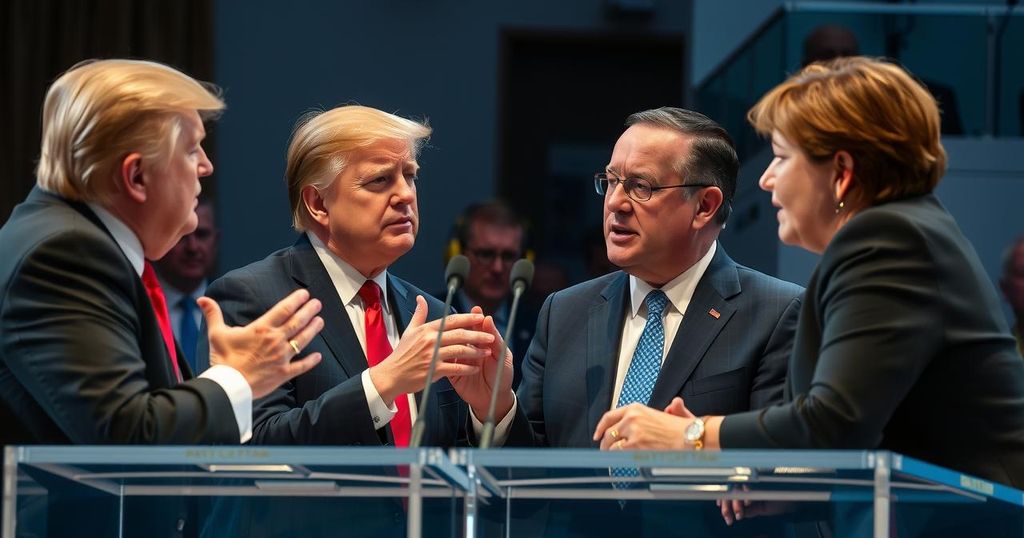The political climate in Germany deteriorated dramatically as Chancellor Olaf Scholz’s government lost a confidence vote, prompting snap elections on February 23, 2024. The nation battles severe economic challenges exacerbated by high energy prices and external competition, while extreme political factions gain traction. As critical elections loom, a unified response is essential for stabilizing Germany’s democratic framework amidst rising tensions in Europe and shifting geopolitical dynamics.
The recent Bundestag debate highlighted the rapid degradation of decorum in German politics, culminating in Chancellor Olaf Scholz’s lost vote of confidence. In a remarkable display, Scholz, alongside opposition leaders, exchanged personal insults, demonstrating the unprecedented strain facing German democracy. Following the failure of his coalition, Germany will conduct snap elections on February 23, 2024. Amid a severe economic crisis marked by high energy prices and challenges in the automotive industry, political dynamics are shifting dramatically. Both extreme right and left parties are capitalizing on public discontent, threatening the stability of established parties. The upcoming elections pose a crucial challenge not only for Scholz’s SPD but for the entire democratic framework in Germany. Furthermore, the uncertain political landscape in France exacerbates the situation in Europe, where leadership is sorely needed. Notably, smaller nations have stepped up to fill the void, redefining security dynamics amidst rising tensions with Russia. As the second largest economy in Europe, Germany must navigate a precarious path forward, one that minimizes divisions and prioritizes unity as election day approaches.
Germany’s political landscape is notably tumultuous, with the recent failure of Chancellor Olaf Scholz’s coalition government precipitating a snap election. The nation faces significant economic challenges, particularly in light of a burgeoning energy crisis and the impending impact of increased competition from Chinese electric vehicle imports. These crises are compounded by the rising popularity of extreme political factions, which leverage nationalist sentiments and discontent with traditional political elites. Complicating matters, France’s political volatility further destabilizes European unity at a critical juncture in international relations, particularly regarding the war in Ukraine and relations with Russia. Amidst these challenges, a considerable infrastructural and spending overhaul is necessary for Germany to regain its footing on the global stage.
In conclusion, Germany finds itself at a precarious intersection of political and economic crises as it heads towards snap elections. The internal conflict between established parties and rising radical factions threatens to erode the democratic foundations of the nation. With the stakes particularly high amidst external pressures and shifting alliances in Europe, it is imperative for German leaders to rise above partisan animosity and work towards a unified vision for the country’s future. The upcoming elections will serve as a critical referendum not only on the current government but also on the overall resilience of German democracy.
Original Source: www.theguardian.com







